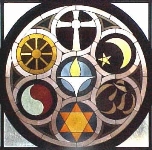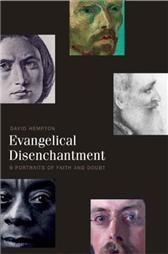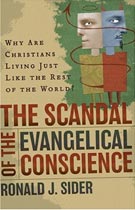
We take our automobiles into the shop every three thousand miles for maintenance. We have annual check-ups with our medical doctors in order to assess our health. We go to the dentist every six months for cleanings and to check for cavities (and to lighten those tenacious coffee stains). We have a host of other similar routines scheduled into our calendars. We keep these appointments in order to assess our current situation, to indentify incipient problems, and to prevent future ones. The surveys undertaken by the Pew Forum on Religion & Public Life serve one of these, that is, to assess the nature of our current situation. The Pew Forum presents detailed results for the rest of us to comb over for trends, deficiencies, and strengths. These surveys help enrich our judgments, and, hence, help shape our actions.

On September 28th, the Pew Forum on Religion & Public Life released the findings from its most recent survey, the “U.S. Religious Knowledge Survey.” Striking findings revolve around the lack of knowledge that Americans have about their own religious traditions and the other major religious traditions of the world. These findings become even more striking when viewed in context. America consistently polls as a highly religious country, especially in relation to Europe. As a result, the question naturally arises, “How can such a religious population have a lack of knowledge about religion?”
The U.S. Religious Knowledge Survey garnered 3,412 respondents from a variety of backgrounds. Pew Forum members conducted the survey over the phone (both landlines and cells) in English and Spanish, and respondents were required to be over 18 years of age. The Pew Forum targeted three primary umbrella categories of respondents: Christian, Jewish, and unaffiliated. The Christian category included Protestants (White evangelicals, White mainliners, Black Protestants), Catholics (White Catholics and Hispanic Catholics), and Mormons. The unaffiliated category included agnostics/atheists and those who are “nothing in particular.”*
The survey consisted of 32 questions that “aimed to test a broad range of religious knowledge.”** The questions, which had differing degrees of difficulty, asked about the central teachings of major faith traditions, significant religious figures, and biblical literacy. Questions ranged from topics such as Martin Luther, the Eucharist, Maimonides, the Koran, the books of the Bible, Hindu divinities, the Dalai Lama, to the legal standing of religion in American schools.
Those who had the highest levels of education tended to answer the most questions accurately followed by those who “attended worship at least once a week and considered religion important in their lives.”** Respondents falling into the category of unaffiliated, i.e., agnostics and atheists, scored the highest of all respondents (averaging 21 correct answers), with Jews and Mormons registering an average of 20 correct answers. Protestants averaged 16 correctly answered questions, and respondents classified as Catholic averaged 15 correct responses.
The survey results found that Mormons were the most knowledgeable about Christianity, and Jews, agnostics and atheists were most familiar with the world’s other major religions. 45% of Roman Catholics had difficulty with questions regarding the Eucharist, specifically not recognizing the Church’s official stance that the communion elements are actually transformed into the body and blood of Christ (technically called transubstantiation); 4 out of 10 Jews were unable to identify Maimonides as one of the most significant rabbis in Jewish history; and over half of Protestants could not place Martin Luther as a founding figure of Protestantism. Overall, “less than half of Americans know that the Dalai Lama is Buddhist, and less than four in 10 know that Vishnu and Shiva are part of Hinduism.”**
Many of us may find the results of this survey disturbing. As noted above, it raises questions about the relationship between religiosity and one’s knowledge and ignorance of one’s own and others’ religious tradition(s). It also draws attention to questions of social and political import, both domestically and internationally. Given that religious traditions factor heavily into the social and political perspectives of the world’s cultures, it seems reasonable that, in light of America’s social and political influence and impact on the world stage, the religious education of the United States’ citizenry should be of primary concern. As the diagnostic tool, that is, the U.S. Religious Knowledge Survey, has disclosed, there is a deficiency of religious knowledge within the American citizenry that needs to be addressed. Liberal Evangelicals, who are concerned with investigating and understanding the complexity of a variety of viewpoints, are uniquely positioned to develop and initiate programs that address this deficiency.
*Information found in the Executive Summary of the “U.S. Religious Knowledge Survey.”
** “Survey: Americans Don’t Know much about Religion,” by Rachel Zoll, an Associated Press religion writer.
Links
Click here to read the Pew Forum’s Executive Summary of the “U.S. Religious Knowledge Survey.”
Click here to read “Survey: Americans Don’t Know much about Religion,” by Rachel Zoll.


